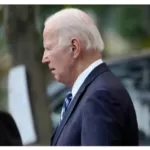In a surprising political development, the Congress party’s recent embrace of Other Backward Classes (OBCs) and its demand for a caste census has raised eyebrows among the regional partners of the INDIA alliance, particularly those with OBCs as their core voter base.
Uttar Pradesh, where OBCs constitute an estimated 40% to 45% of the population, witnessed a notable shift in the Congress’s stance on OBC politics, leaving the Samajwadi Party (SP) surprised. Historically, the national party had kept a considerable distance from OBC-centric issues.
Responding to Congress’s newfound interest in OBCs and the call for a caste census, SP’s national president, Akhilesh Yadav, remarked during an event in Rewa, Madhya Pradesh, “Congress talking of caste census is nothing short of a miracle in Indian politics.” However, he tempered this statement with a more conciliatory tone, adding, “Nothing could give more joy than the fact that now the Congress talks of caste census and chose to tread the socialists’ path.”
Rahul Gandhi, a senior Congress leader, advocated for a nationwide caste census in Chhattisgarh, stating, “The Indian government was being run by secretaries and cabinet secretaries and not by MPs or MLAs, and out of 90 of them (bureaucrats) in the Modi government, only three were from the OBCs.” Notably, both Madhya Pradesh and Chhattisgarh were approaching crucial elections.
Professor Sudhir Panwar, a noted socialist thinker, commented on this shift, saying, “The Congress seems to have realized the value of OBCs in the country now. Otherwise, it was the party that was opposed to the ‘Mandal’.”
The Mandal Commission, also known as the Socially and Educationally Backward Classes Commission (SEBC), was established in 1979. It submitted its report in 1980, and the VP Singh-led National Front government implemented its recommendations in 1990, providing 27% reservation in jobs to OBCs. Notably, the Congress government did not implement the commission’s report.
Despite this change, Professor Sudhir Panwar dismissed the notion that the Congress’s outreach to OBCs would significantly affect parties like the Samajwadi Party or the Janata Dal (United), as these parties have historically championed the cause of OBCs and social justice.
SP’s national spokesperson, Ameeque Jamei, emphasized the party’s commitment to social justice, saying, “SP is the original ‘social justice’ party. The SP is not insecure about the Congress making OBC or caste census chorus.”
Political analyst Professor SK Dwivedi pointed out that while cooperation between the SP and Congress could strengthen their OBC politics in the short term, in the long run, it might be a different story. He noted, “Whenever they are not in alliance in an election, the Congress’s engaging in OBC policies would harm the SP and will benefit the BJP.”
Brijlal Khabri, former Uttar Pradesh Congress president, stressed the need for opposition parties to unite on this issue, stating, “We have to look at the challenges today.”
Intriguingly, these political dynamics are unfolding against the backdrop of the upcoming elections, making the Congress’s shift towards OBCs a topic of intense discussion in the political arena.






